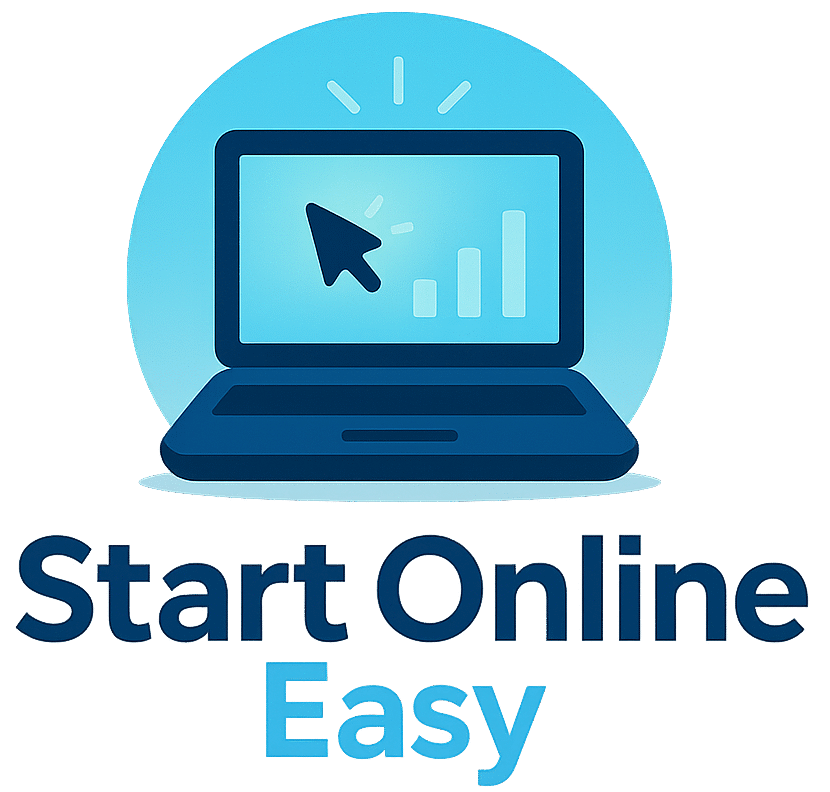If you’re jumping into the world of online entrepreneurship, budgeting is one of the best skills you can pick up right from the start. It’s easy to focus all your energy on the fun parts, like building a website, crafting your brand, or brainstorming new ideas. However, running out of cash too soon is a headache no one wants. I’ve seen plenty of new online entrepreneurs get tripped up by money surprises, so knowing how to manage your funds isn’t just nice to have; it saves you stress, time, and real money in the long run.

Why Budgeting Matters for New Online Entrepreneurs
Any online business, whether it’s a dropshipping store, a digital service, or a blog that’s just starting out, involves costs, both upfront and ongoing. Without a solid plan, it’s common to overspend on things like tools, ads, and websites, only to realize later things didn’t pan out as expected.
Recent surveys show almost half of small business owners say cash flow problems get in their way. For startups and solo founders, keeping your expenses in check while you reinvest in growth is really important, especially since your income can be unpredictable. Even small weekly decisions add up over a few months. By being intentional about where your money goes, you can focus on building, not patching financial leaks.
Today, new tools and low overhead models make starting an online business more accessible than ever, but the temptation to splurge on every shiny subscription or gadget is real. A simple budget can guide your decisions, help you avoid debt, and keep you on track toward your bigger goals.
Budgeting Basics to Get Started
The first step to a good budgeting system is figuring out what you’re earning and what you’re spending, even if your income isn’t steady yet. Here are a few common terms and budget items you’ll run into:
- Revenue: All the money your business brings in—sales, consulting projects, affiliate commissions, whatever counts as income for your model.
- Fixed Costs: Regular, predictable expenses that don’t change much each month, like website hosting, licensed software, or a coworking space.
- Variable Costs: These change month to month, such as ad spend, shipping fees, freelancer payments, or extra plugins you grab as you grow.
- Profit Margin: How much you keep after expenses. Higher margins mean more room to reinvest or pay yourself.
- Runway: How many months you can keep going with your current expenses before funds run out. It’s super useful for planning ahead.
Starting out, your income will likely be lumpy. The goal with your first budget is to get a clear sense of what’s coming in, what’s definitely going out, and then leave room for the unexpected.
Quick Start Guide: Building Your First Online Business Budget
Putting together your first budget doesn’t need to be complicated. Here’s a straightforward approach that works for most new online entrepreneurs:
- List Your Expected Income Sources: Estimate what you can realistically bring in from sales, services, ad revenue, or other areas each month.
- Track All Your Expenses: Write down all recurring payments you need to keep things running, from domains and hosting to email tools and marketing subscriptions.
- Set Aside a Safety Net: It helps to keep at least one to three months of expenses saved as a cushion for slow periods or surprise bills.
- Use Simple Budgeting Tools: Google Sheets, Notion, or an app like Wave can keep you organized. No need to get fancy; the aim is to keep everything clear and easy to update.
- Review and Adjust Every Month: Your first budget isn’t set in stone. As your business changes, tweak your numbers and add new categories as needed.
Tracking what you earn and what you spend helps you track down trends, avoid nasty surprises, and celebrate small wins along the way.
Common Cost Areas for New Online Entrepreneurs
Knowing where your biggest costs will show up makes planning—and saving—way easier. Here are some areas where most new online businesses spend their first dollars:
- Website and Hosting: Registering your domain and paying for fast, reliable hosting. Expect to spend anywhere from $3 to $30 per month when starting out.
- Software Tools: Spending for email marketing, ecommerce platforms, SEO tools, and anything else you need to run your business online.
- Branding and Design: Even if you DIY your first logo, there might be some spending on graphics, templates, or professional help setting things up.
- Marketing: Paid ads, influencer partnerships, or content production. Even if you keep it lean, plan for a little monthly spending to bring in traffic and leads.
- Professional Fees: Business licenses, simple legal paperwork, or the occasional accountant’s advice.
- Learning and Development: Courses, books, or memberships to help you skill up quickly. It’s smart to allocate some funds here, especially early on.
Categorizing expenses early lets you put priority on what matters and avoid wasting money before it becomes a problem.
Things to Keep in Mind Before Committing Money
Sticking to a budget is easier when you’re honest about your needs versus the “nice to have” stuff. Here are a few extra tips for stretching your dollars further and skipping unnecessary stress:
- Test First, Spend Later: Most tools come with free trials or starter plans. Try out what solves a real problem before upgrading.
- Keep Fixed Costs Low: Avoid locking into long, expensive contracts. Flexibility is key when you’re still figuring out what works for your business.
- Shop for Deals: Yearly discounts, bundle offers, or open source alternatives are everywhere if you check around.
- Don’t Skimp Where It Counts: Saving money is good, but not at the expense of critical stuff like security, good hosting, or legal basics. Some things are worth every penny.
It truly makes sense to compare options and figure out what genuinely helps you move closer to your business goals.
Stretching Your Budget Further
A few extra strategies can help new entrepreneurs make their money go further:
- Make use of free marketing tactics like content creation, community engagement, or social sharing before spending big on paid ads.
- Befriend automation. Simple workflows using tools like Zapier or Make can save you time and reduce the need for outside help.
- Batch tasks and manage your own schedule to avoid unnecessary costs, especially for graphics, admin, or copywriting at the start.
- Take advantage of your network for advice, skill swaps, and honest feedback instead of paying for every answer right away.
Advanced Budget Tricks for Growing Online Businesses
Once you have a few months or clients behind you, these more advanced tips can give your business a boost:
Automate Insights: Connect your bank accounts or invoicing tools to budgeting apps. This saves time, helps you spot trends, and lets you focus on growth instead of manual data entry.
Plan for Taxes: In most countries, folks running online businesses are responsible for saving and tracking their own tax payments. Set aside some of every sale so you aren’t caught off guard at tax time.
Invest in Scaling: As profits grow, route some funds into tools or support that free up your time—like hiring virtual assistants or expert freelancers. Just make sure to track the results before making big investments.
Learning how to read simple financial reports, even just income statements and cash summaries, is really handy as your business grows. Platforms like QuickBooks or Xero help make this much easier, even for beginners.
What Budgeting Looks Like in the Real World
I’ve seen many new entrepreneurs get creative about saving money while still making real progress:
- An online coaching business used Notion to track clients, payments, and learning resources, keeping costs almost zero for their first launch.
- A small Shopify store skipped pricey ad platforms and used a combo of TikTok and Pinterest posts, saving hundreds while growing their following steadily.
- Many freelancers use free versions of time trackers and Google Docs to manage workflow, only upgrading after client volume justifies it.
Smart budgeting isn’t about being stingy; it’s about getting clear on what truly moves your business forward, spending there, and trimming the rest.
Frequently Asked Questions
Here are answers to some practical questions that come up for new online entrepreneurs:
How strict should I be with my first budget?
Start flexible. Your first few months will probably include surprises. Focus more on learning and tracking than on getting everything perfect from day one.
What’s the best tool for online business budgeting?
Google Sheets or Excel work well for most beginners. Wave and FreshBooks both have solid free plans if you want more automation.
How do I know I’m spending too much on a certain area?
Compare your monthly spending to your revenue and see if what you’re investing is actually helping you reach your goals. If not, consider lower-cost alternatives or cut back for a bit.
Wrapping Up
Putting effort into budgeting when you’re getting started pays off big later. A simple, flexible budget helps you maintain focus, skip unnecessary stress, and build your online business on a sturdy foundation. Keep experimenting, learn from your numbers, and always invest in what moves your business forward.

That brought back memories, Arne. When I first started online, I didn’t even know what a “runway” meant. I just knew my wallet was running out faster than my ideas. I spent money on things that looked smart at the time; fancy tools, a domain I didn’t use, even a logo I later redesigned myself. It took months of trial and error to realize that budgeting wasn’t about restriction. It was about direction.
I like how you said budgeting helps you “focus on building, not patching leaks.” That line hits hard. Once I started tracking every dollar, I found peace in the process. I could finally see what mattered and what didn’t. For me, switching from paid ads to organic traffic saved my business in the early days. It’s not easy, but clarity beats chaos every time.
I’m just curious; in your experience, what’s the one expense most new online entrepreneurs underestimate? For me, it was the small recurring subscriptions. They look harmless, but they bite when you’re not watching closely. That’ my experience.
John
Thanks for sharing your experiences with budgeting.
I agree that all the small subscriptions that add up to a large amount are the worst. This is where you need to choose carefully and have a spending limit set from the start.